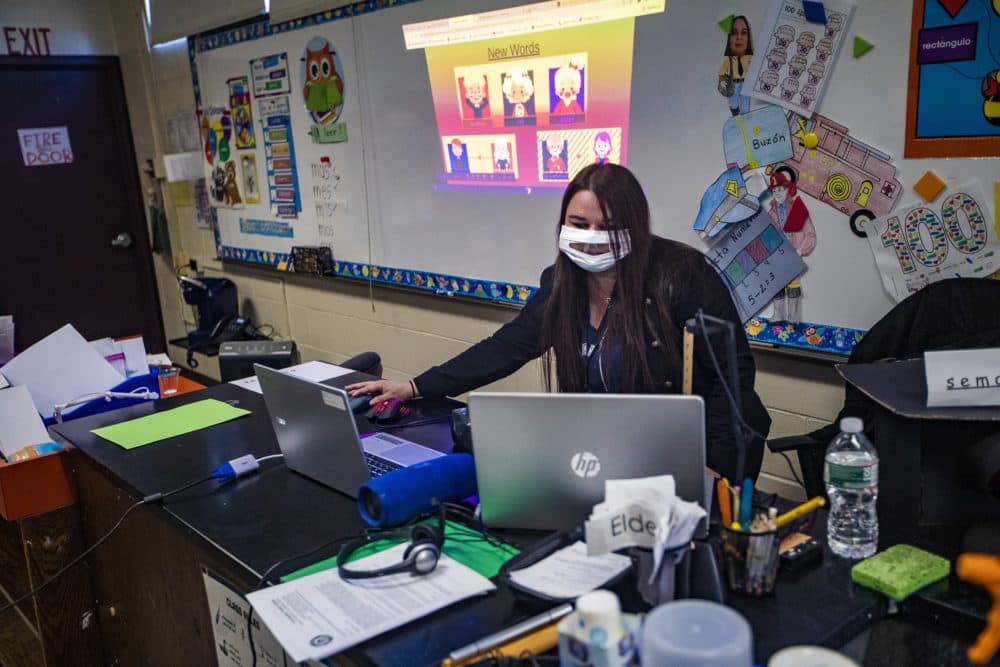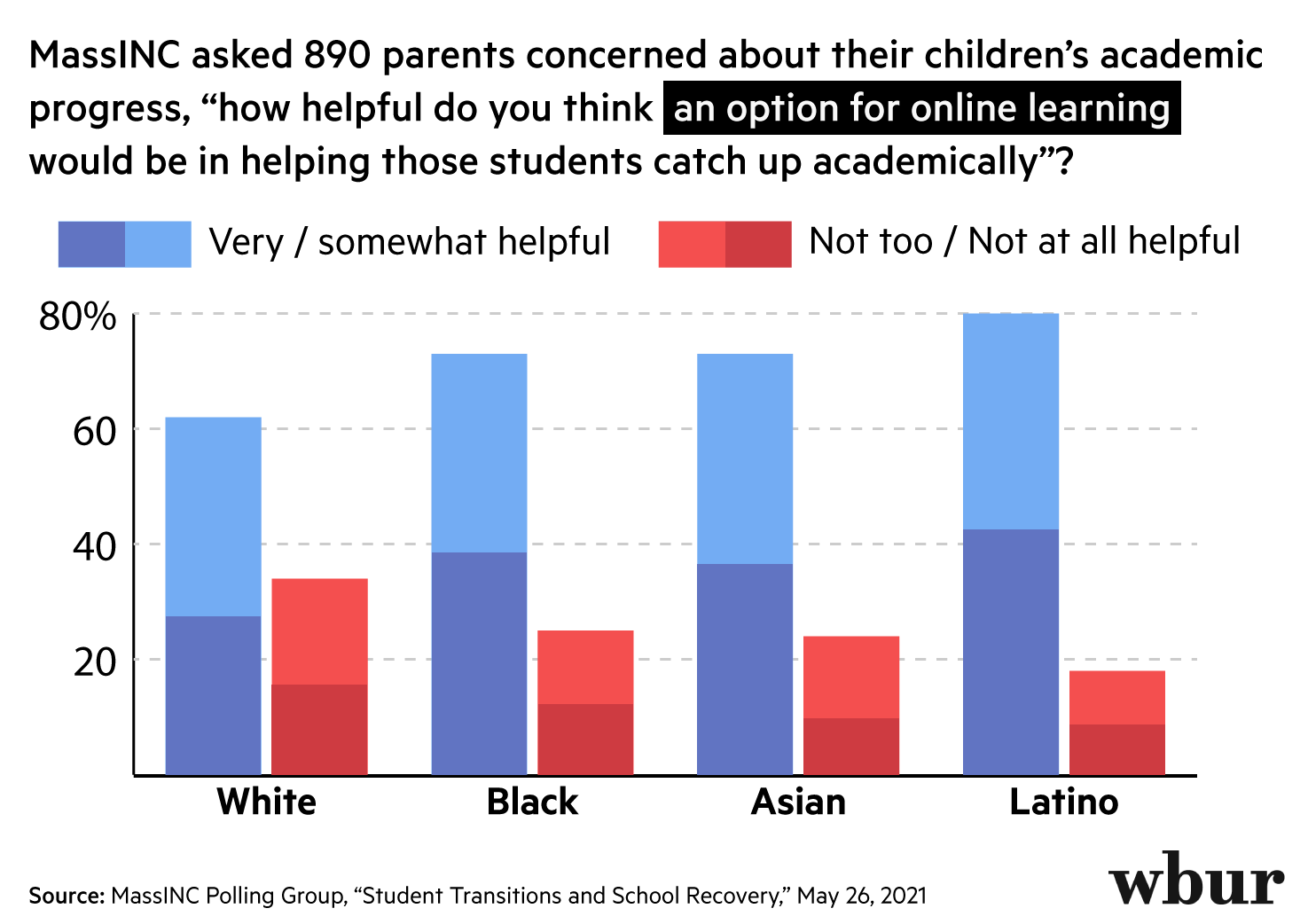Advertisement
Poll: Most Parents Want A Full Return To School Buildings — But Not A Return To 'Normal'

A new poll finds that 55% of Massachusetts parents believe their school-age children will need extra time and attention to catch up academically after over a year of disrupted learning.
But the respondents differed — sometimes starkly — on the form the state’s academic recovery effort should take, and on their ideal “new normal” inside public schools.
“The largest number [of parents] want to get back into the classroom, and think that would be most helpful in catching up,” said Steve Koczela, president of the MassINC Polling Group, which conducted the poll in late April and early May (toplines, crosstabs).
Among parents who believe that their child needs to catch up, 89% told pollsters they believed the full return to in-person schooling will help.
"It has to be noted," Koczela added, “that there are many people who think that having some sort of option for online instruction would be useful.”
About 21% of parents concerned about catch-up favored an “online option” going forward. The responses to that question were starkly differentiated by parent age: 83% of parents in that group over 50 put their hopes in a return to in-person schooling, compared to just 52% of parents 18-34.
State education officials have already said this spring that online and hybrid modalities — already largely phased out — are unlikely to be available for districts in the fall. But Massachusetts does have two public virtual academies that draw on communities across the state.

MassINC pollsters also asked about the influx of funds earmarked for education as part of the federal pandemic response. The American Rescue Plan, signed in March — and one among a suite of ambitious relief efforts — directs $1.8 billion at the state’s public schools.
Majorities of parents across all demographics argued that districts should spend freely and in nearly every area of their budgets: in particular, by expanding tutoring and college and career support as well as adding technology and staff.
Koczela notes that Latinx parents tended to show “a broader range of funding priorities.” Large majorities of those parents are urgently seeking investment in mental and emotional health resources (74%), expanded public pre-kindergarten (70%) and updated school buildings (64%).
By comparison, the largest portion of Asian respondents (68%) rated college and career readiness programs as a high priority for funding.
Because this was a poll of school-age parents, Koczela noted, it is not hard data on its own. “This is just parents’ own assessment of where their child is relative to where they think their child should be,” he said. “It’s not, ‘How did they do on MCAS?’”
Most students will still take the state’s standardized test this spring. But current high school juniors won’t need to take it on their way to their diplomas.
The poll’s most intriguing finding may be that just 21% of all respondents explicitly said that they hope for a full return to the pre-pandemic status quo come fall. (Another 22% didn’t report anything that they wanted to keep from the past year of schooling.)
Across racial categories, roughly 10% of respondents hope that COVID safety protocols will still be in place in September. And small but considerable groups spoke up for keeping some of the past year’s accidental innovations — what Koczela called “more individual, intensive sorts of things.”
Among them, he noted, were “frequent updates on child’s academics, additional one-on-one or small group instruction, individualized learning plans — things that put more focus onto the individual child.”
